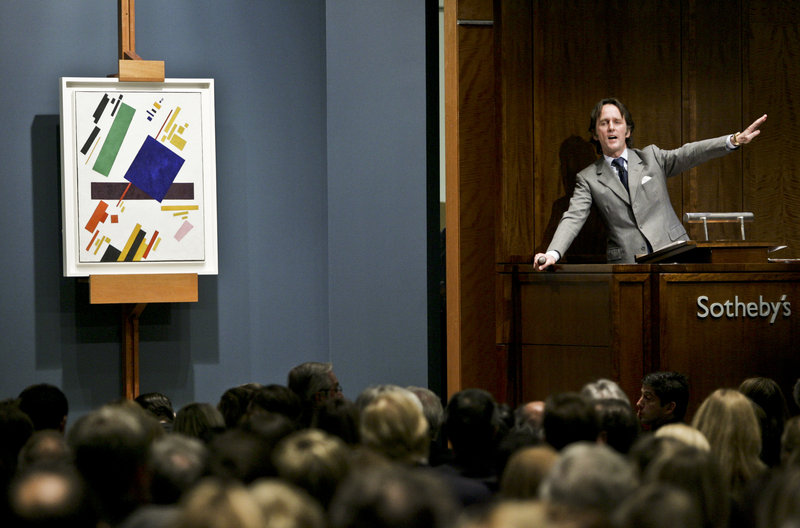WASHINGTON – Who believes they’ll be a millionaire?
About two in 10 Americans do — a small showing of optimism compared with Australians, but downright cheery next to Britons, according to a new Associated Press-CNBC poll.
In all three countries, more than seven in 10 of those surveyed said they were unlikely to become millionaires in the next decade.
The results reflect the psychic toll that the world’s economic troubles have taken on the aspirations of individuals. Solid majorities of can-do Americans, at 61 percent, and Britons, at 63 percent, say it’s extremely or very difficult for their countrymen to become millionaires today.
“It’s an unrealistic thing for anybody to assume,” said Jason Hall, 35, a heavy equipment operator in Loganville, Wis.
Across the pond, 19-year-old Natasha Hill, an apprentice at a London hair salon, said many of her friends looking for work amid high unemployment have essentially given up.
“There’s no determination, nothing to aim for,” Hill said. “Everyone is in robot mode — they just settle.”
On the flip side of the planet, just 35 percent of Australians feel the same way.
“Oh, yes, yes, yes you can” become a millionaire, said Australian student Hannah Peters, 21. “Anybody can become a millionaire. There are so many opportunities here. You just have to know how to go about it.”
The Aussies have reason to be so darned sunny. Unemployment there is 5.3 percent, nearly half the U.S. rate of 9.1 percent and well below the 8 percent in Britain. And a natural resources boom in Western Australia is helping grow the country’s economy about 3 percent this year, according to forecasts by the International Monetary Fund. The equivalent figure for the United Kingdom is 1.7 percent and for the U.S. economy 2.8 percent, though many private economists expect it to be lower.
Still, becoming a millionaire was tough to imagine for many Down Under.
“My pay is lousy and I spend it,” said Tasmanian Brian Draney, a 47-year-old lineman and father of two young children.
Polling last month by the AP and CNBC found that Australians are the most optimistic of the bunch, with 29 percent of respondents there saying they feel good about their prospects of eventually becoming a millionaire in the next decade, compared with 21 percent in the U.S. and just 8 percent in the U.K.
In reality, the United States leads the world in millionaires. There were more than 5.2 million of them in 2010, or nearly one in every 20 households, according to The Boston Consulting Group’s latest annual global wealth report. Great Britain had 570,000 millionaires, or about one in every 45 households. Australia had 133,000, or about one in every 60 households, but that’s an increase of 35,000 over the previous year.
The consulting group’s survey measured millionaires in terms of U.S. dollars. Those polled by AP and CNBC were asked how likely it was that they’d be worth a million of their own monetary unit — U.S. dollars, Australian dollars or British pounds. One million American dollars is worth about 964,000 Australian dollars and about 633,000 British pounds.
But the difference is academic when large majorities never think they’ll have such fortunes to their names.
Asked to imagine being millionaires, residents of all three countries had similar priorities for spending it: The bulk of them said they would save it, invest it, buy real estate, pay down debt and share with family, the survey said.
Respondents across the board listed “saving or investing” as their first priority. The last priority? Americans and Australians listed “giving away to charity.” Brits left “paying down debt” for last, the polls showed.
Back at the London hair salon, Charlotte Hagan-Boyla, 19, confesses to “spending money the day I get it.”
But becoming a millionaire, she thinks, isn’t out of the question. You could win the lottery, she reasoned, or you could work your way up.
“Or,” she added, “you could always marry a rich man.”
Send questions/comments to the editors.



Success. Please wait for the page to reload. If the page does not reload within 5 seconds, please refresh the page.
Enter your email and password to access comments.
Hi, to comment on stories you must . This profile is in addition to your subscription and website login.
Already have a commenting profile? .
Invalid username/password.
Please check your email to confirm and complete your registration.
Only subscribers are eligible to post comments. Please subscribe or login first for digital access. Here’s why.
Use the form below to reset your password. When you've submitted your account email, we will send an email with a reset code.